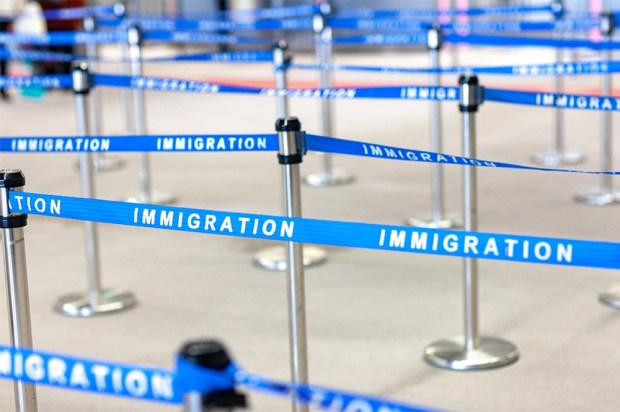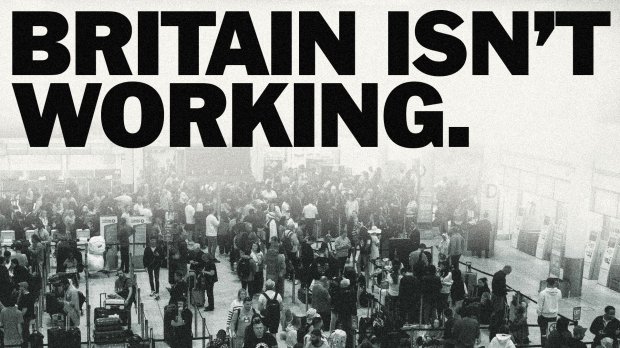During the Cold War, any citizen of a Soviet bloc country who made it to Britain and claimed asylum was welcomed with open arms. The fact people wished to take great risks to move westwards for safety and shelter, while hardly anyone wanted to move in the opposite direction, settled the question of which system was better. Besides, the numbers who made it out were tiny – the brutality of border guards patrolling the Iron Curtain saw to that.
In recent years, the concept of asylum has been complicated by the debate on how to handle the much larger flow of migrants who are prepared to risk their lives fleeing poverty. One of Boris Johnson’s biggest headaches before the Ukraine crisis was his inability to stop the new wave of small-boat crossings to the UK. How could he promise to ‘take back control’ of Britain’s borders if he had demonstrably lost control of them to people smugglers?
We ought not to confuse this issue with the situation in Ukraine. Its people should be given an immediate and unconditional right to asylum here. The United Nations estimates that some 660,000 people are on the move, which is understandable given that Russian missiles are being directed at residential blocks. The Prime Minister has rightly ruled out a no-fly zone because it could escalate the situation and lead to war with Russia. But this raises the question: what more can we do to help, above and beyond what we have done already?
It should be obvious that anyone carrying a Ukrainian passport has a genuine reason to flee their country. The current scheme, which allows only relatives of Ukrainians in Britain to settle here, is a needless and indefensible obstacle. The situation in Ukraine is not a case of a small skirmish in one corner of a country or one group of people being particularly at risk. The whole nation is under existential threat from a foreign power determined to annex it by means of lethal force.
Britain has often been quick to offer asylum in cases of clear need. Priti Patel is one beneficiary, in that her parents fled to Britain before Idi Amin expelled the Ugandan-Asian population. A Conservative government later offered not only to accommodate but to evacuate thousands of Asians being persecuted by Amin: a decision that was not just humane but of great benefit to Britain as this influx of industrious, creative refugees came to strengthen our economy and society.
Dominic Raab, the former foreign secretary, is also from a refugee family. He has worked together with the Home Secretary to make a generous offer to the people of Hong Kong trying to flee China’s tightening grip. Britain has only a small number of Ukrainians, most of whom arrived during the post-war period. But there is no reason to believe that Ukrainian migration would be any less successful than the integration of Poles into British society over the past two decades.
The point of Brexit was not to lower migration, but to control it. It was intended to create a system that suited our needs rather than the EU’s. The British government has already developed a new migration policy. Ministers should be equally agile in responding to the Ukrainian refugee crisis. It is a European problem which needs to be addressed by all European countries, whether in the EU or not. Poland, a migration-sceptic country that refused to take in Belarusians, has opened its border to all Ukrainians. We should too.
In recent days, there has been a renewed unity of purpose from the people of Europe. They are united in horror at seeing, once again, long lines of Russian tanks heading towards a European capital. The West, having become horribly divided, now stands together. Its sanctions go far further than originally envisaged. Germany’s position has been transformed; Japan and South Korea have opted in; Australia is sending £40 million of military aid to Ukraine; even Switzerland is dropping its neutrality.
Putin has reminded the democratic world that our political spats and standoffs are trivial compared with the principles that bind us. These principles, when attacked, require robust defence. The EU has recognised this by offering all Ukrainian refugees asylum for the next three years, without so much as a formal application. It would be a shame for Britain to start falling behind the EU now.
Giving unconditional help to Ukrainians does not mean that Britain should throw open its doors to anyone at any time, nor cease to tackle the problem of human trafficking across the Channel. For the asylum system to work, those who are in genuine need must not be confused with those trying to game the system.
But faced with a sudden and obvious crisis such as the Ukraine invasion, it is clear that Britain must help. There is broad public support for the refugees. The government should make an immediate and generous offer to welcome Ukrainian citizens.
Got something to add? Join the discussion and comment below.
Get 10 issues for just $10
Subscribe to The Spectator Australia today for the next 10 magazine issues, plus full online access, for just $10.
You might disagree with half of it, but you’ll enjoy reading all of it. Try your first month for free, then just $2 a week for the remainder of your first year.














Comments
Don't miss out
Join the conversation with other Spectator Australia readers. Subscribe to leave a comment.
SUBSCRIBEAlready a subscriber? Log in